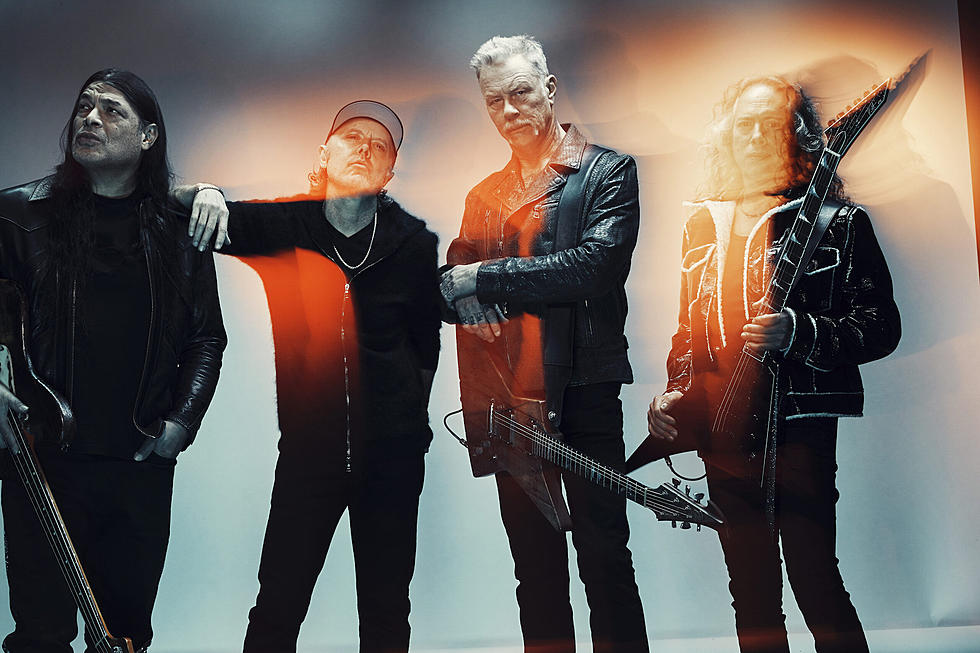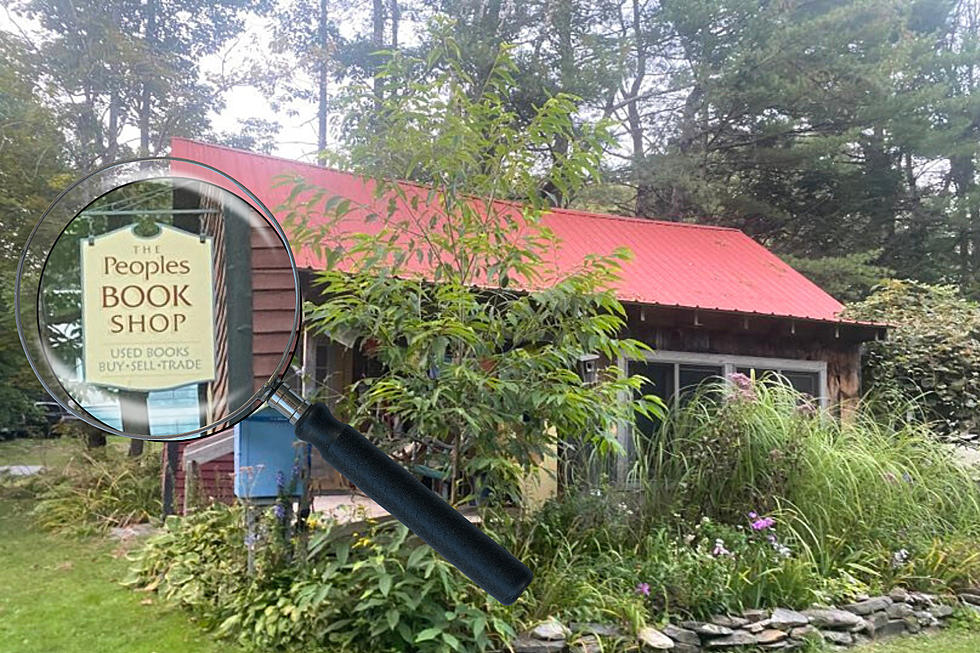
10 Things We Love About Metallica’s New Album, ’72 Seasons’
On the morning of Monday, Nov. 28, Metallica stopped the rock world in its tracks when they announced plans for their next studio album, 72 Seasons. Along with that announcement came the first taste of what to expect with the pummeling "Lux Æterna."
Since then, Metallica have released three more songs: "Screaming Suicide," "If Darkness Had a Son" and most recently, the title track, "72 Seasons."
Each song brought a different flavor of what Metallica have been working on over the last several years, but they all also pointed toward a common thread of heavy guitars and drums guiding even heavier lyrics.
And the rest of 72 Seasons only affirms that commonality as Metallica showcase why they're the biggest rock band in the world. An album that begs to be listened to at full blast, 72 Seasons might be one of Metallica's heaviest collections of songs they've ever released in their 40 years of being in the studio.
Which means, it's not for the faint of heart.
But no matter whether you've been a fan since No Life 'Til Leather or you're just coming around to the idea of joining the Metallica Family, we're pretty sure you'll dig these 10 things we love about Metallica's new album, 72 Seasons.
The Heavy Opening 1-2-3 Punch of "72 Seasons," "Shadows Follow" and "Screaming Suicide"
The title track is one of the standout moments on the album, and with 72 Seasons, we get it up front before anything else. As the song culminates and wraps up with James Hetfield singing, "Feeding on the wrath of man," he leaves you with no chance to catch your breath; "Shadows Follow," one of the heaviest songs on 72 Seasons, comes in at full force.
Hetfield opens with the dark lyrics, "Hanging by a thread as I play dead," which sets the stage for the rest of the song as he tries to outrun his shadows, leading into the reflective—and if possible on this album, hopeful—"Screaming Suicide." Each of these songs can easily stand on their own, but when they come together, they create an absolutely unforgettable opening sequence of heavy metal.
James Hetfield's Vocals on "Too Far Gone?"
When the world hears 72 Seasons, no matter what the critics say or what the reviews try to pontificate, there will be one universal truth that everyone will agree on: James Hetfield sounds really, really good on his record.
There is an anger and intensity that hasn't been present on recent albums — an anger and intensity that fans will recognize from '90s-era-live Hetfield that started returning throughout 2022. While this energy is on every single track, "Too Far Gone?" is the song that captures Hetfield's newfound ferocity at its best.
Kirk Hammett + Rob Trujillo Have Seven Writing Credits
When Metallica released St. Anger, there were no individual writing credits. Instead, the liner notes simply said all of the songs were "written by Hetfield/Ulrich/Hammett/Rock [producer Bob Rock]."
Then on Death Magnetic, the first studio album to feature Robert Trujillo on bass, the liner notes specified that Hetfield wrote all the lyrics while the entire band was credited with the music compositions.
With Hardwired...to Self-Destruct, writing credits started looking more like they did in the '80s, with Hetfield and Lars Ulrich credited as the sole writers (save for "ManUNkind," which Trujillo contributed to).
So when the credits were revealed for 72 Seasons, it was surprising to see Kirk Hammett and Trujillo were given writing credits on more than half of the album's tracks. Hetfield and Ulrich co-wrote all of the songs and Hammett contributed to "72 Seasons, "Crown of Barbed Wire," "Chasing Light" and "If Darkness Had a Son," while Trujillo's efforts are heard on "Screaming Suicide," "Sleepwalk My Life Away" and "You Must Burn!" Interestingly, Trujillo and Hammett never co-wrote together.
Kirk's Solo on "You Must Burn!"
"You Must Burn!" is one of three tracks that clocks in longer than 7 minutes, and though it won't ever be confused as one of Metallica's fastest or thrashiest songs of their career, it builds toward a memorable solo from The Ripper himself. The solo runs around a minute and stands out as one of his best on 72 Seasons.

Hetfield's Lyrics Are More Confessional—and Vulnerable—Than Ever Before
Over the last couple of decades, James Hetfield has been anything but shy. He's been open about his continued struggle with alcohol and addiction and he was more vulnerable than ever before throughout the filming of Some Kind of Monster.
It's not uncommon for Hetfield to insert his life and history into the lyrics he writes, but on 72 Seasons, his willingness to put himself out there is on a completely different level.
In the first half of the album the chugging "You Must Burn!" captures the feelings one may experience as an outcast. "Smile as it burns to the ground / The perfect don’t want you around," Hetfield sings in the chorus. "Question yourself, you may learn / You are the witch, you must burn."
While the lyrics heard on "Room of Mirrors" deal with introspection and doubt in others ability to perceive you for who you really are. Who hasn't dealt with feelings of insecurity over whether or not someone (or even yourself) will understand all the parts of you — good and bad?
"In a mirrored room
All alone I stand
Seeing past the flesh and bone
The shame and the fear I hide
Could I show you what’s inside?
Would you criticize, scrutinize, sanitize my pain?
Would you summarize, patronize, classify insane?
So I stand here before you
You might judge you might just bury me
Or you might set me free"
In the album's closer "Inamorata" Hetfield personifies misery as a lover by illustrating the painful push and pull of a toxic relationship, “Comfort in the hell I know / Resentment like a cancer grows.”
Overall, the album repeats themes of struggling through darkness and trying to find your way to the light and, regardless of your specific set of circumstances, who experiencing the human existence can't relate to that?
Nearly Every Second of Music Matches the Heaviness of Hetfield's Lyrics
As we mentioned at the start of this, 72 Seasons isn't for the faint of heart. If your head isn't spinning by the time the 77 minutes are up, you may want to make sure you actually pressed play.
The heaviness of the guitars, drums and bass are relentless, all creating a sonic environment for Hetfield's lyrics to dwell in. While this might be overwhelming to some, it simply deepens the journey that Hetfield is taking listeners on; there are no delicate arrangements here except for a brief moment in "Inamorata," and even then, it doesn't really feel any lighter given the theme of the song. Every second of the music matches the weight of the lyrics.
Metallica Fans Get Another Powerful Title Track
Think about the title tracks that Metallica have given fans over the years: "Ride the Lightning." "Master of Puppets." "...And Justice For All." "St. Anger." Each one is an epic in its own right that tells the story of the entire album in one song. Even "Hardwired"—though, we're not sure if you can officially call this a title track — does that with Hardwired...to Self-Destruct.
And Metallica have done it again with "72 Seasons," a song we've already showered praise on in this list of things we love about the album. And as good as "St. Anger" and "Hardwired" might be, "72 Seasons" deserves a place among those legendary title tracks from the '80s.
There Are Some Fun Easter Eggs Throughout 72 Seasons
"Lux Æterna" made "Full speed or nothin'" a common phrase for Metallica fans over the last few months, but that's been a mantra of the band and fanbase for 40 years ever since they sang it on "Motorbreath" — "Don't stop for nothing, it's full speed or nothing."
Other fun easter eggs pop up at the end of some of the tracks. After "Screaming Suicide" concludes, you can hear one of the band members—is that you, Rob?—say, "Nice," and following "Inamorata," two of the guys say, "Thank you, good night!" followed by, "That was the best one." We're excited to keep finding hidden surprises as we listen to 72 Seasons over and over.
The Sprawling Jam on Closing Track "Inamorata"
When Metallica revealed the track times for the songs on 72 Seasons, metal fans collectively let out a "gasp" when they saw the closing track: "Inamorata," coming in at 11 minutes, 10 seconds. An inamorata is someone's female lover, and for Hetfield and company, that female lover in the song is Misery: "Misery, she needs me / But I need her more / Misery, she loves me / But I love her more."
It's not a happy note to end an album on, but given everything you've read so far, what else did you expect? This back-and-forth between Hetfield and Misery lasts for more than 11 minutes, but it never feels like it's dragging on or that there are wasted moments on the track. Hammett shines a couple of different times; there is a really powerful moment where, about halfway through, Hetfield sings "Misery" right along with Hammett's solo. That's followed by the most low-key moment on the entire album as we hear Ulrich ride the high hat while Trujillo keeps the pace going.
Everything on the Cover and Inside the Album's Packaging
When 72 Seasons was first announced, it seemed like the album cover received mixed reviews from fans, but one thing is certain: You won't forget the contrast of the yellow and black color scheme and the charred remains of a baby crib and many other childhood items. If the music and lyrics of 72 Seasons aren't for the faint of heart, then the album cover perfectly matches up with what's inside.
72 Seasons is out April 14 and can be purchased here. Metallica embark on their two-year, worldwide M72 tour beginning on April 27 in Amsterdam. You can find their full tour schedule here and grab tickets at this location.
Metallica: A Photo Timeline of Their Remarkable Career
PLAYLIST: Early Thrash - The '80s & '90s
Listen/follow here and view the first 100 songs in the playlist directly below.


